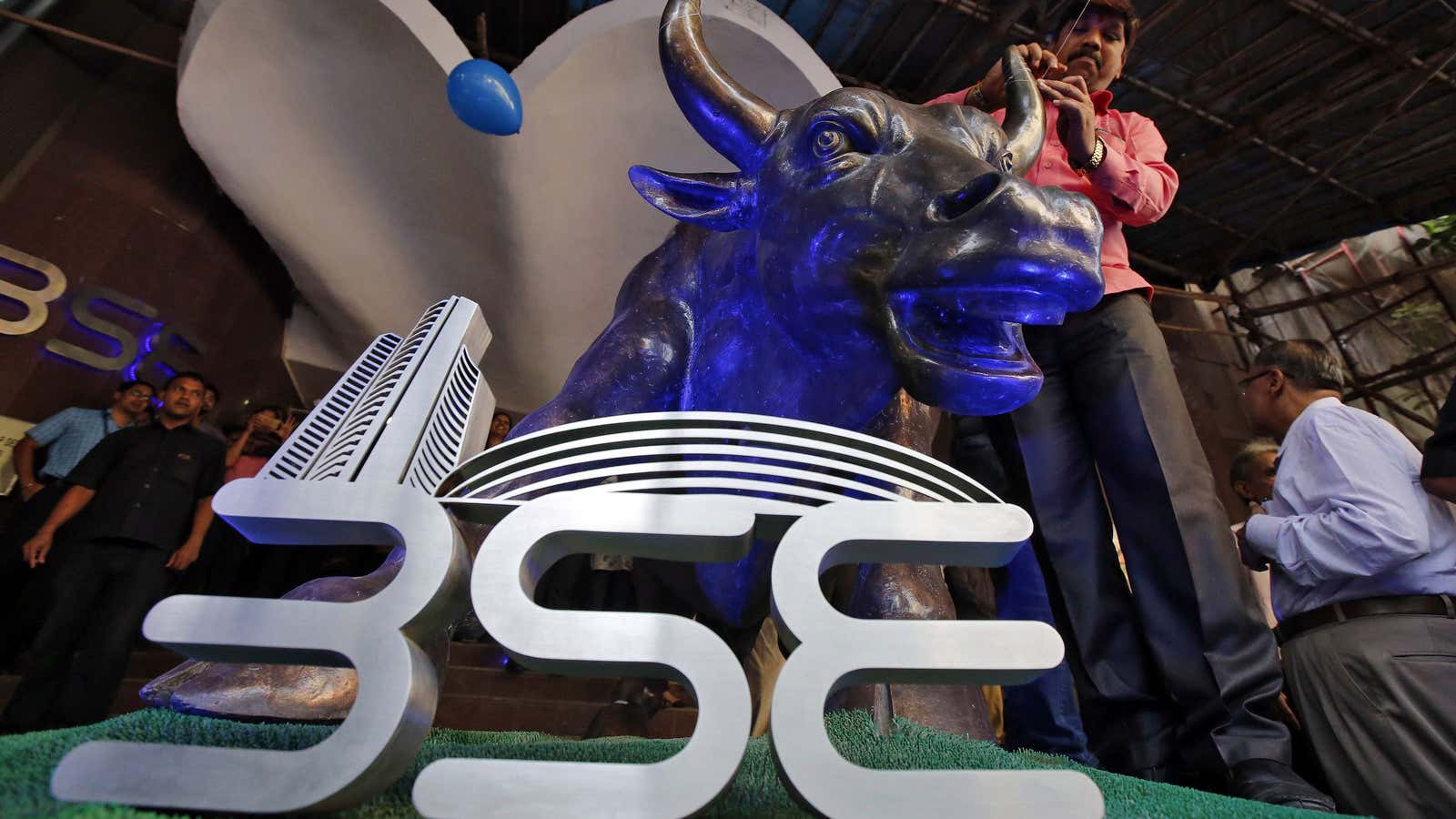India’s stock markets have had a very busy year so far.
In the first half of 2018, Indian bourses saw 90 initial public offerings (IPOs)—making for 16% of all listings worldwide and 27% more than a year ago.
India also saw a 28% year-on-year rise in IPO proceeds during January-June 2018 at $3.9 billion (Rs27,000 crore). This was 5% of the total funds raised via IPOs globally during the period, according to an EY report.
“The IPO ecosystem is evolving at a rapid pace in India with several companies looking to list within 2018,” said Sandip Khetan, partner and national leader of financial accounting advisory services at EY India.
Who’s listing where?
Fifteen of the 90 companies that went public in India during January-June 2018 listed on both of the country’s leading bourses: the National Stock Exchange (NSE) and BSE. These 15 accounted for 93% of the total proceeds during the period, EY said.
The highest number of IPOs in India during the first half of 2018 was from the industrial sector which also topped in terms of proceeds. The companies from this sector that debuted on the stock market in 2018 include Varroc Engineering (raising Rs1,955 crore) and Sandhar Technologies (Rs300 crore).
Other key sectors were banking (Bandhan Bank), hospitality (Lemon Tree Hotels), and food services (Barbecue Nation).
During the second half of the year, it is likely to be India’s burgeoning renewables industry that will see a surge in IPO activity. ”Many companies in this (renewables) sector are preparing for initial public offerings,” EY said.
For instance, ReNew Power, India’s largest renewable energy producer, plans to raise $390 million through a public listing, while Adani Green Energy, the firm that built the world’s largest solar plant in Tamil Nadu, is also eyeing an IPO.
The other factor that’ll keep the IPO momentum intact is the Security and Exchanges Board of India’s decision to reduce the number of years for which a company needs to declare financial results, from five to three, before going public. This will “provide an impetus to more IPO activity as lower efforts will be needed,” Khetan of EY said.
